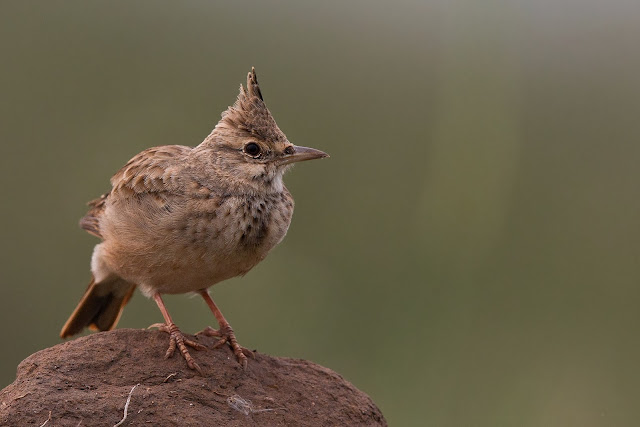Migrants and Residents at Rawal Lake
On Saturday 5 October 2013, we visited the eastern shoreline
of Rawal Lake; a little later than we had planned because Islbirder hadn’t set
his alarm properly and had slept in. However, it was only just past sunrise
when we reached our destination. The drive to he location had been accompanied
by mumblings about the dense haze and the fact there had clearly been an
isolated downpour very recently. With the weather unseasonably warm for
October, with daytime peaks of mid-30s, the haze was added to by the humidity.
Not good conditions for our photographers who cursed their weather apps that if
they had displayed more accuracy would have had our snappers stay in bed.
However, as it looked a bit brighter over Bill’s mother’s we optimistically
looked forward to more clement conditions.
There was a feel of migration in the air and the numbers of
SYKES’S WAGTAIL and WHITE WAGTAIL in the small, cultivated fields bore
testimony to that. There were also Larks but these were of a sedentary nature,
both CRESTED LARK and ORIENTAL SKYLARK.
Most of the Pipits were the familiar PADDYFIELD PIPIT but
there was also a couple of migratory TREE PIPIT neither of which were in any way
arboreal as they searched for food amongst the upturned soil of the field. Over
the reeds good numbers of BLUE-TAILED BEE-EATER hawked insects and there were
plenty of PLAIN PRINIA and ZITTING CISTICOLA amongst the reed stems. A very
welcome surprise was a couple of RIVER TERN that are usually more associated
with riverine habitat. However, the star of the show on the eastern shoreline
was one of two BLUETHROAT present superbly captured by SvZ is dramatic pose.
We moved on to Jinnah Road Marsh where the biggest surprise
was the complete lack of Baya Weavers and only abandoned and incomplete nests.
Their absence is a worrying development and currently without explanation.
There were plenty of Bee-eaters and most were GREEN BEE-EATER.
The Marsh is a great place to see Dragonflies and this one,
so expertly captured, had caught a day-flying moth that it commenced to devour
whilst the unfortunate creature was still alive.
There were many PIED BUSHCHAT seen and no doubt most are
about to leave the Islamabad area for the winter to be replaced by the Grey
Bushchats from higher altitudes.
 |
| Male Pied Bushchat Sarel van Zyl |
 |
| Eurasian Hobby Sarel van Zyl |
Probably, the most exciting bird was the EUROPEAN HOBBY, a
migrant bird of prey that coincides its migration with that of Hirundines upon
which it preys. The Hobby also preys on Dragonflies and it is not surprising
that this individual chose the Marsh as a stop-off point. My thanks to SvZ for
his fantastic pictures and commiserations to RMK who lost his due to a computer
glitch.
 |
| Got One At Last! White-throated Kingfisher Sarel van Zyl |
It was another good morning's birding with a total of 60 different species recorded.







